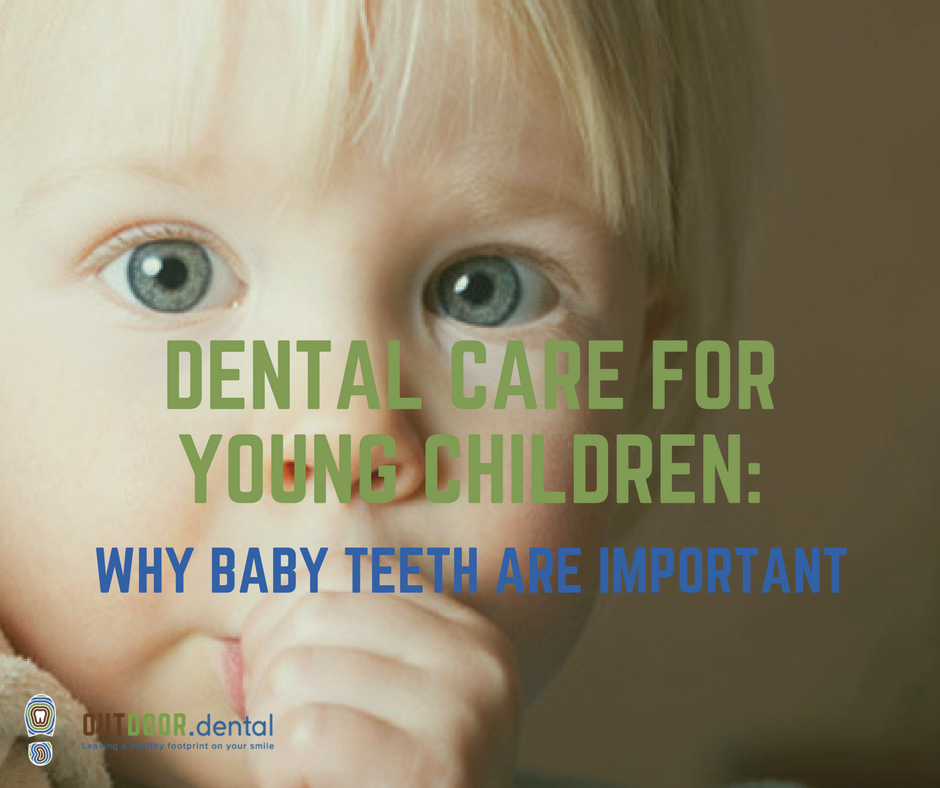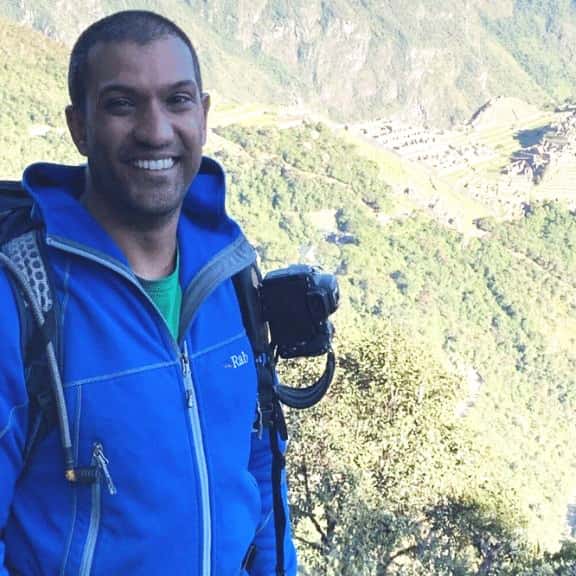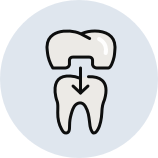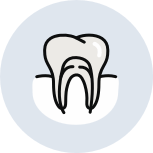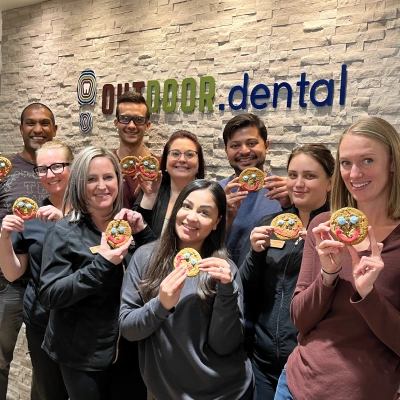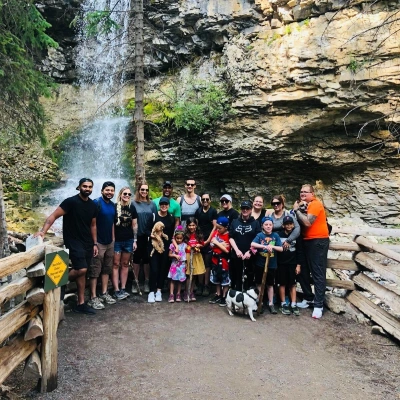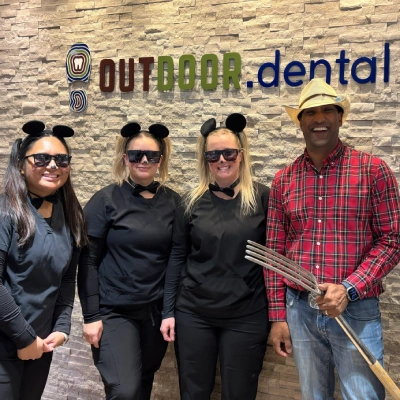Are baby teeth just as important as adult teeth?
Many patients who come to our Calgary family dental office—and others around the world—tend to think baby teeth aren’t important. They conclude that because baby teeth eventually fall out, they’re not as vital.
I understand why people feel this way, but the truth is that primary teeth are extremely important. So, to help our patients and readers who are parents, I’ve created a helpful guide below.
Why Baby Teeth Are So Important—What Parents Should Know
The New York Times recently reported on studies showing the importance of caring for baby teeth. The studies show that kids who have decay in their baby teeth are three times as likely to develop decay in their adult teeth.
There are two main reasons for this.
- Lack of homecare habits. Some parents avoid brushing or flossing their children’s teeth because kids sometimes put up a fuss. As a father of a toddler myself, I get this! After a long day, I’m tired and just want to relax. The easiest thing to do is avoid conflict. Unfortunately, this can set kids up for failure.
If daily dental homecare isn’t enforced at a young age, they aren’t magically going to start brushing and flossing just because their permanent teeth come in. But, if a child is taught early on about the importance of homecare, they’ll be on board to do these things for a lifetime.
- Chronic infection. Decay is caused by bacteria in the mouth. Once that bacteria is exposed to sugar in any form—candy, milk, formula, juice—they form acids that attack the teeth. The acids cause decay. Until the decay is removed, the child basically has a chronic infection.
Even if the decayed baby teeth are extracted, filled, or fall out, that doesn’t mean the infection is gone. The level of bacteria in the mouth is now higher because they’ve been allowed to breed. The result: a greater likelihood that their permanent teeth will get decay.
Problems that can arise if baby teeth aren’t cared for properly
Without proper homecare and dental visits, major problems can arise. Not only are teeth at a higher risk for decay, other problems can arise.
- Gum disease. If children aren’t taught and encouraged to floss, they can get early stage gum disease. The result is bad breath; red, swollen gums; and bleeding with brushing, flossing, and even eating.
- Speech difficulties. Losing a tooth too early can result in speech impediments.
- Poor occlusion. If a tooth is lost before the adult tooth is ready to come in, problems can arise. The remaining teeth shift to fill in the space. This makes it difficult for adult teeth to come in. It can also make them erupt in a position that isn’t ideal for optimal tooth function.
- Insecurity. When a tooth is lost or a child has to wear metal caps over their teeth, they can feel insecure. They might avoid smiling; and, in some cases, they might even be made fun of by other kids.
- Chewing difficulties. Losing a tooth before an adult tooth is available to replace it can make chewing difficult. The child might not be able to chew their food thoroughly. This can raise the chances for choking or painful chewing.
OUTDOOR.dental’s Dental Care Guide for parents of young children
Here’s what I recommend for your child’s homecare practices.
- Homecare starts before the teeth come in. After feeding your child, use a damp, soft washcloth to wipe their gums. Doing so will remove the sugars from their drink, formula, or food. That means less sugar for bacteria to feed of off and grow.
- As soon as your child gets their first tooth, get a pediatric tooth brush. Also, get them scheduled for their first dental examination. This is usually around twelve months of age. Make sure the toothbrush you use is a soft-bristled brush. We offer free pediatric kits for our patients.
- Turn dental care time into fun family time. Make brushing fun. Get the whole family involved. Hum songs while you sing to keep track of your brushing time (approximately 2-4 minutes). Music is also a great distraction—it makes the time fly!
- When it comes to fluoride, a little dab does it. Start at the age of two with a dab the size of a grain of rice. Around age four or five, increase to a pea-sized amount. Make sure your child doesn’t swallow the paste. You don’t want them to have an upset tummy. Fluoride toothpaste should be used around an age when children are able to spit the toothpaste out.
- As soon as your child’s teeth start to touch, teach them how to floss in between their teeth.
- Show your kids fun videos about taking care of their teeth. These videos will also help you teach your kids how to brush properly.
As your family dental care clinic, we have your child’s best interests at heart
My goal is to teach our pediatric patients from a very early age how to take care of their health—both general and dental. I want to help parents reduce their child’s chances of getting dental decay. That is why at Outdoor Dental, I offer complementary exams for children up to the age of three. It is also why my assistant, Nicole and I teach both parents and children about the importance of a healthy diet, physical activity, and regularly show them the proper ways to care for their teeth.
When it comes to dental care for young children, we promote early training and dental visits. We’re positive that the better trained and educated your children are at a young age, the better chances they’ll have of keeping their teeth. As your Calgary dentist office, we take pride in caring for patients of all ages, including the very youngest ones.
If your child has their baby teeth but hasn’t seen a dentist yet, we highly recommend you make an appointment. The sooner they get comfortable in the dental chair, the better. Not only will they be more likely to take good care of their teeth, they’ll experience less dental anxiety. And that is a wonderful gift for any parent to give their child.
Do you think this guide will be helpful for teaching your child about dental homecare? If you would like even more information on the subject of dental care for young children, or would like to schedule your child for their bi-annual examination, we welcome you to contact us today!

